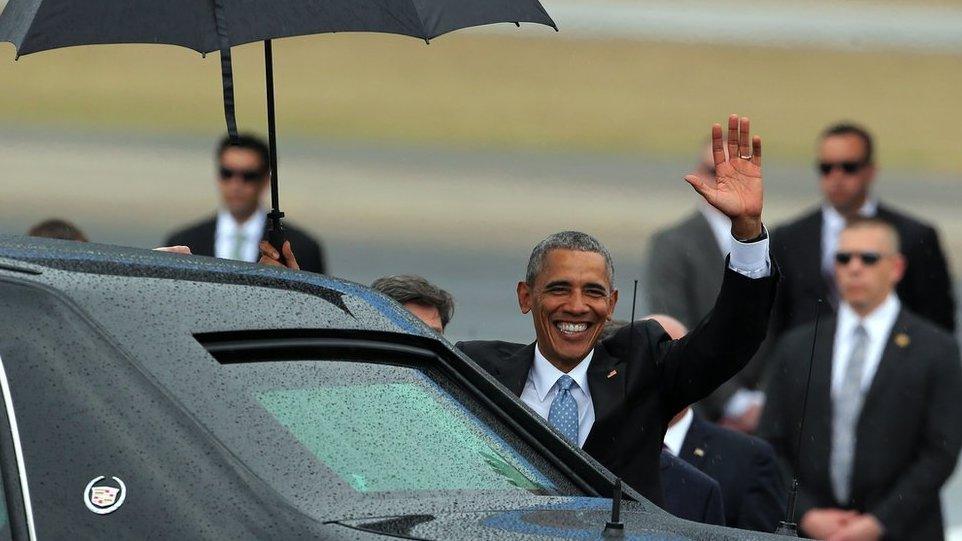Cubans stranded in Mexico after US 'slams door shut'
- Published
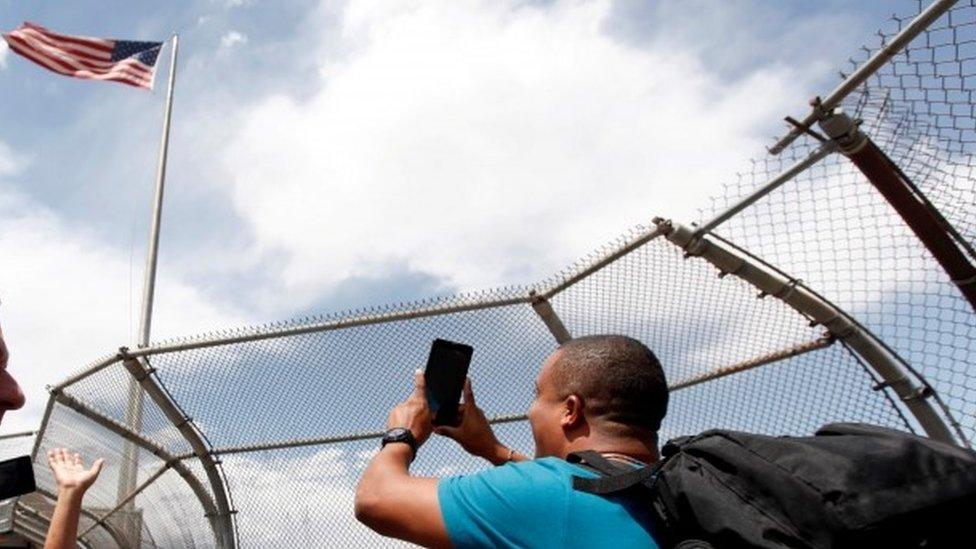
Many Cubans are stranded in Mexico as a result of President Obama's announcement
President Barack Obama's decision to end a long-standing policy granting temporary residency rights to Cubans arriving in the US without a visa has left many would-be migrants stranded. BBC Mundo's Valeria Perasso has been speaking to one Cuban father and daughter waiting in Mexico and now facing an uncertain future.
Jose Enrique Manresa and his daughter Arianne were hoping finally to reach the US this week after a 48-day journey from their home in Cuba through South and Central America.
"We've lost everything." says Mr Manresa. "We risked everything on our journey and if we don't have the right to live in the US after all that, then there's no hope for us."
For 20 years Cubans have benefited from a policy introduced in the US by presidential decree which gave them the right to enter the country without a visa and remain for one year in order to apply for legal residence.
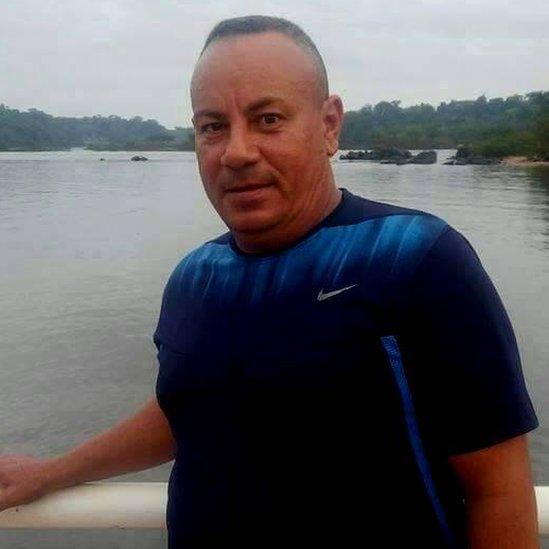
Jose Enrique Manresa sold his house to raise money to reach the US with his daughter
Since the rapprochement between Washington and Havana began in 2015, Cubans have been bracing themselves for the policy to be cancelled and the past two years have seen a sharp rise in the numbers of people seeking to move to the US while they still can.
But no-one was anticipating this week's sudden announcement.
Mr Manresa and his daughter were in a shelter in Tapachula, south-east Mexico, when they heard the news.
"We are so sad," said Mr Manresa, one of 20 Cubans living in the shelter.
"We are all calling our families in Cuba, we are desperate. I had to sell everything."
Mr Manresa's story is typical for his generation.
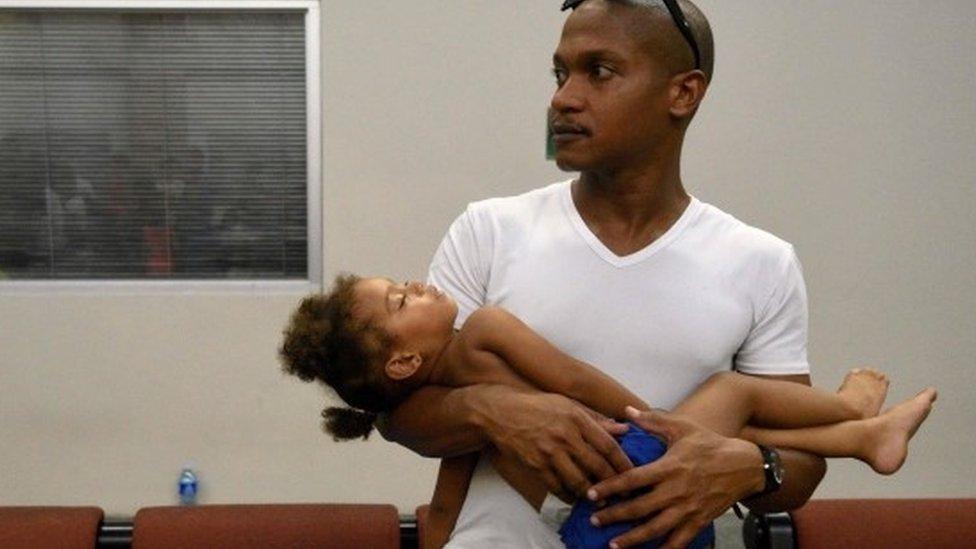
Thousands of Cubans are often forced to travel from country to country in their quest to get into the US
He has a degree in finance and economics and has worked for the Cuban state since the age of 22.
After 25 years, his salary as a manager overseeing five shops for a soft drinks company was the equivalent of just $20 (£16.40) a month.
Seeing no prospect of life improving he decided to take his chances and try to make it to the US to start a new life with his daughter.
It was a long, risky and expensive journey.
"I sold everything: my house, my appliances," he explains. "I got into a lot of debt as well to gather the $10,000 I needed to pay for the journey."
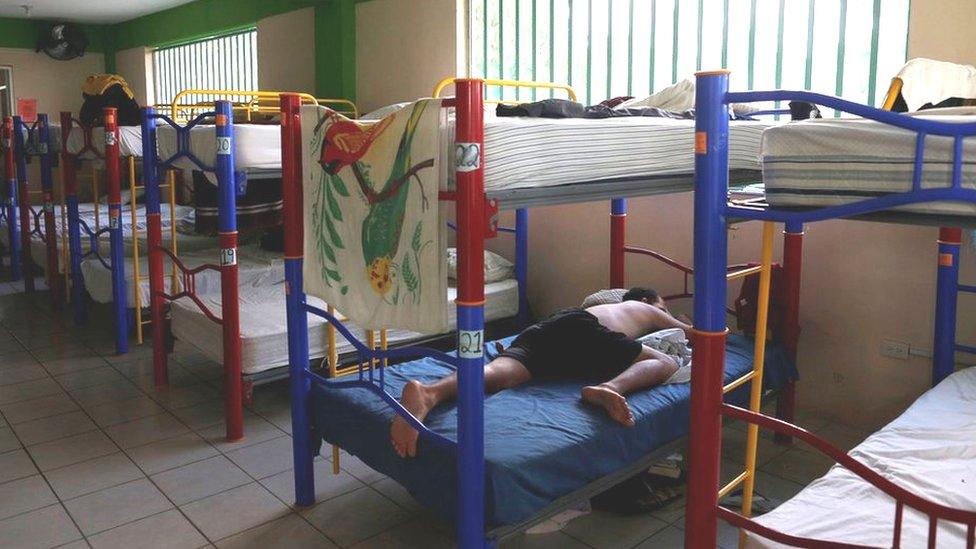
This shelter is one of several on Mexico's border with Guatemala where migrants are welcomed while awaiting permission to get to the US
Mr Manresa's first destination was British Guyana where he paid the bulk of his money to traffickers who then took him on a complicated journey via Brazil, Venezuela, Colombia, Panama, Costa Rica, Nicaragua and Guatemala before finally reaching Mexico.
At the start of their journey he and his daughter were part of a group of 150 Cubans, but by the time they finally made it to the Mexican border there were just 20 people left.
Some had been detained by local police and others got lost along the way.
'Retaliation'
For many Cubans, the journey to the US now takes months, rather than the few weeks most anticipate.
Recently many South and Central American countries have implemented tighter rules for crossing their borders in order to deal with growing numbers of Cubans trying to make it to the US before the door finally closes.
Statistics from the US Customs and Border Protection Office showed that more than 45,000 Cubans entered the US in 2016, up from 25,000 in 2014.

Cubans in the United States
There were more than two million people of Cuban ancestry living in the United States in 2013, about 68% of whom lived in Florida
The number of Cubans entering the US has increased significantly since President Obama began his rapprochement with the island's government. In the 2014 fiscal year, 24,278 Cubans arrived in the US. Nearly double that number - 43,159 - arrived in 2015, and more than that arrived last year
Public opinion polls suggest that recent arrivals and Cuban-Americans born in the US are more supportive of warming US-Cuba relations than those who arrived before 1980
Sources: Pew Research Center; Cuban Research Institute

WATCH: How Obama's olive branch caused a Cuban exodus
Most of these people are coming in through Mexico.
When Jose Enrique Manresa arrived in southern Mexico at the start of the week he discovered there were already 600 Cubans in the queue ahead of him waiting for an immigration permit to enter the US.
News that he may have arrived just too late has plunged him into despair.
"Obama, because he's leaving, suddenly takes the idea of repealing a law that has been going on for many years and has favoured many Cubans," he told the BBC.
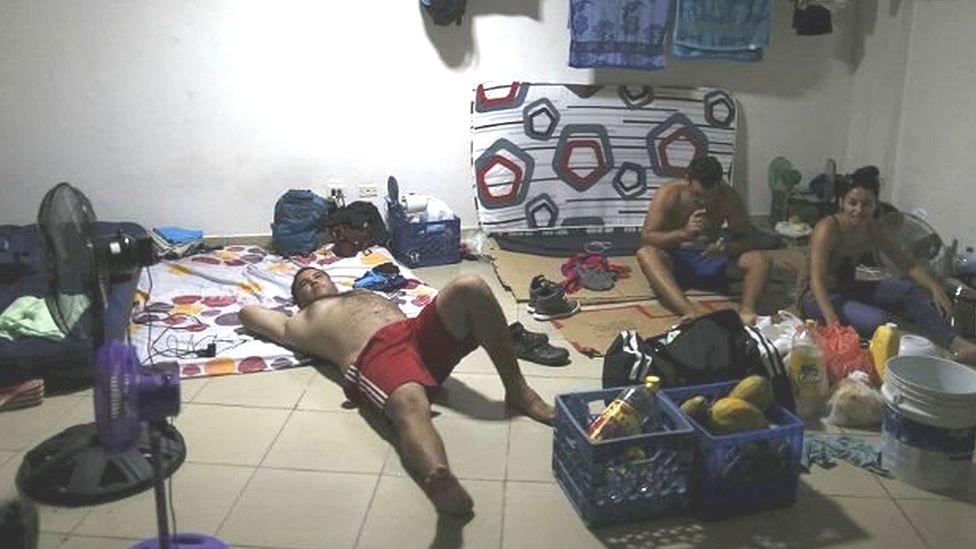
Nearly 90% of Cubans who entered the US in 2016 chose to cross the northern border of Mexico than by sea in the Florida Straits
Some Cuban migrants now even wonder if the decision could be "a reprisal" because so many Cuban Americans voted for Donald Trump, he added.
Mr Manresa and his daughter are now facing possible deportation to a detention centre in Cuba, and say all they have left is "a change of clothes and a pair of shoes".
"We do not know anything," he says. "We do not know what we are going to do."
- Published13 January 2017
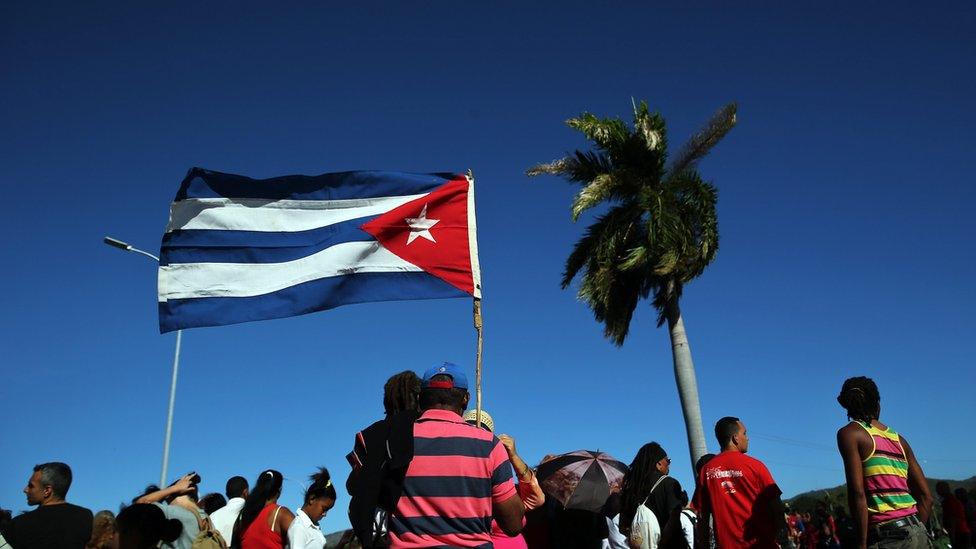
- Published21 March 2016
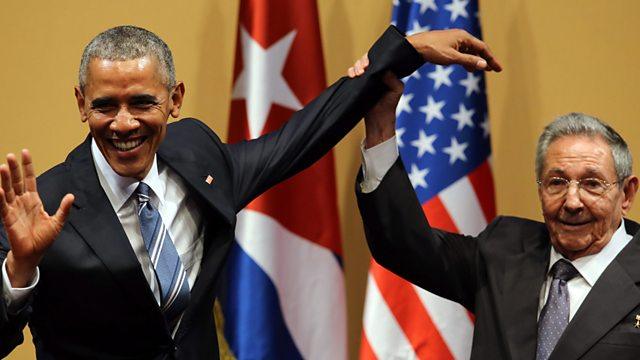
- Published21 March 2016
